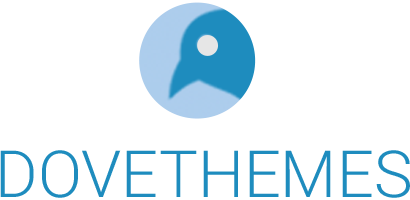In the competitive field of web development, having a strong personal or company brand is key to standing out. Branding is much more than visual appeal; it’s about creating an identity that reflects your expertise and unique approach to web development, making a lasting impression on your clients.

Here’s how you can do it!
1. Establishing a Unique Brand Identity
Your brand identity should be a mirror to your professional persona. It’s how clients will perceive and understand your services. This identity isn’t just about visual design; it’s about communicating your expertise, style, and approach in a way that resonates with your target audience.
2. Showcasing Your Brand Through Your Work
A web developer’s portfolio is often the first interaction with potential clients. Ensure your portfolio is not just a collection of work but a showcase of your brand. From the design of the portfolio itself to the projects featured, every detail should reflect your brand identity.
3. Crafting a Compelling Brand Narrative
Developing a brand narrative is about telling the story behind your brand – the journey that led you to where you are today. It’s a blend of your professional experiences, the challenges you’ve faced, and the victories you’ve achieved.
A well-crafted narrative does more than just share facts; it connects emotionally with your audience.
- Incorporate Personal Experiences: Share personal anecdotes that have shaped your approach to web development. This could include a pivotal project that changed your perspective or a particular challenge that pushed you to innovate.
- Highlight Your Motivations: Discuss what drives you in your work. Whether it’s a passion for cutting-edge technology, a commitment to user-friendly design, or a desire to help clients achieve their goals, let your audience understand the ‘why’ behind what you do.
- Show Growth and Evolution: Your narrative should showcase how you’ve grown and evolved as a professional. Talk about the lessons learned and how they’ve contributed to your current skill set and service offerings.
4. Understanding the Role of IP Valuation
Valuing the intellectual property associated with your work is critical. This includes everything from original code and designs to unique software tools you’ve developed. Protecting and valuing your IP is not just about legal safeguards; it adds to your brand’s overall worth.
5. Emphasizing Trademark Protection
Trademarking your brand name, logo, and slogans is essential for protecting your brand identity. This legal step prevents others from using similar identifiers, which could confuse your audience and weaken your brand.
6. Consistency in Trademark Usage
Using your trademarked elements consistently across various platforms solidifies your brand identity and contributes to its recognition and longevity. Whether on your website, social media, or in business communications, consistency in your brand’s presentation is key.
7. Maximizing Social Media for Branding
Social media is a powerful tool for branding. Platforms like LinkedIn, Twitter, and Instagram can help you reach a broader audience, showcase your projects, and position yourself as an industry expert.
8. Engaging with Your Audience on Social Media
Building a community around your brand involves engaging with your audience on social media. Share relevant content, respond to comments, and partake in industry discussions. This interaction can lead to new connections and opportunities.
9. Showcasing Your Expertise Online
Demonstrating your expertise online goes beyond just listing your skills and qualifications. It’s about actively showcasing your knowledge and thought leadership in the field of web development.
- Create Original Content: Write blog posts or articles on topics related to web development. Share insights on industry trends, offer tips, or delve into complex subjects in a way that’s accessible to your audience.
- Engage in Online Communities: Participate in online forums and social media groups related to web development. Offer advice, answer questions, and share your thoughts on relevant discussions. This not only showcases your expertise but also helps in building a professional network.
- Host Webinars or Workshops: Organize online events like webinars or workshops where you can share your knowledge and interact with an audience. This can be an effective platform to demonstrate your proficiency and engage with potential clients or collaborators.
- Leverage Multimedia: Use different forms of media to showcase your expertise. This could include creating tutorial videos, developing interactive infographics, or even hosting a podcast on web development topics. Diverse content formats can help reach a wider audience and cater to different learning preferences.
Conclusion: Building a Lasting Brand in Web Development
In summary, effective branding for web developers encompasses a unique identity, a compelling narrative, protection of intellectual property, and active engagement with your audience.
A robust brand can elevate your presence in the field of web development, attract potential clients, and distinguish you in a crowded market. Remember, your brand is a reflection of your professional journey – cultivate it carefully, and it will become one of your most valuable assets.
